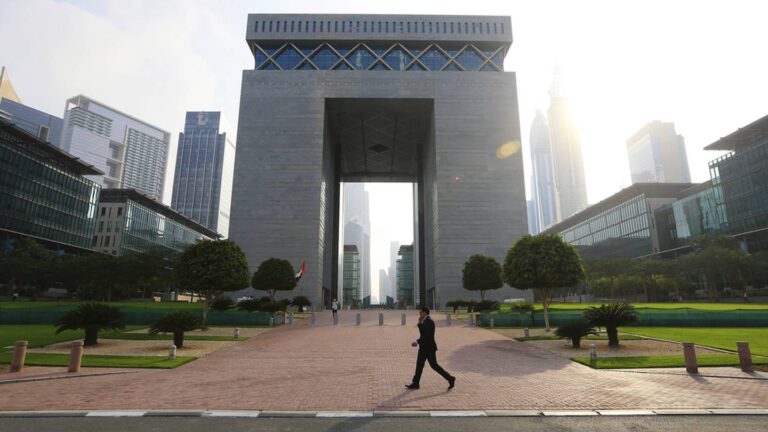
The Dubai Financial Services Authority, the regulator of the emirate’s financial centre, the Dubai International Financial Centre, unveiled its cryptocurrency token regime for digital assets.
The regime forms the second phase of the regulator’s work in this area after the introduction of a regulatory framework overseeing digital assets in October 2021, the DFSA said on Tuesday.
The cryptocurrency token regime aims to foster innovation in a “measured, responsible and transparent” manner while meeting the DFSA’s regulatory objectives, it said.
“As a progressive regulator, the DFSA recognises the growing interest in innovative financial products,” DFSA chief executive Ian Johnston said.
“Our work to develop a comprehensive crypto token regime has taken into account feedback from a broad range of stakeholders. It aims to strike a balance between encouraging innovation in the DIFC and protecting the consumers of these financial products.”
In March, the DFSA published its framework to regulate security tokens for public consultation, which included clauses to tackle investor protection issues and misconduct risks, as well as address market integrity, financial stability, money laundering and terrorism financing threats.
The DFSA defines a crypto token as one that is used, or is intended to be used, as a medium of exchange or for payment or investment purposes but excludes an investment token, or any other type of investment, or an excluded token.
Common types of crypto tokens are cryptocurrencies, stablecoins and utility tokens.
Only DFSA-recognised crypto tokens that meet certain criteria can be used in the DIFC. The DFSA will publish an initial list of “recognised crypto tokens” on its website.
All companies, whether currently authorised by the DFSA or not, that wish to carry out business relating to cryptocurrency tokens in or from the DIFC can apply through the DFSA website, the regulator said.
The regime is comprehensive as it covers not only money laundering and terrorism financing risks in respect of trading, clearing, holding or transferring crypto tokens, but also addresses risks relating to consumer protection, market integrity, custody and financial resources for service providers, the DFSA said.
The regulator will consider further changes and amendments to the regime in alignment with best practice and standards adopted by international standard-setters.
It has extended the scope of many financial services activities such as advising, dealing, arranging, trading and custody to allow companies in the DIFC to offer products and services in relation to crypto tokens.
Cryptocurrencies are not licensed by the UAE Central Bank, although a number of cryptocurrency exchanges have been given permission to operate within financial free zones.
The UAE dirham is the only legal tender in the country that is recognised by the Central Bank.
Updated: November 01, 2022, 10:31 AM